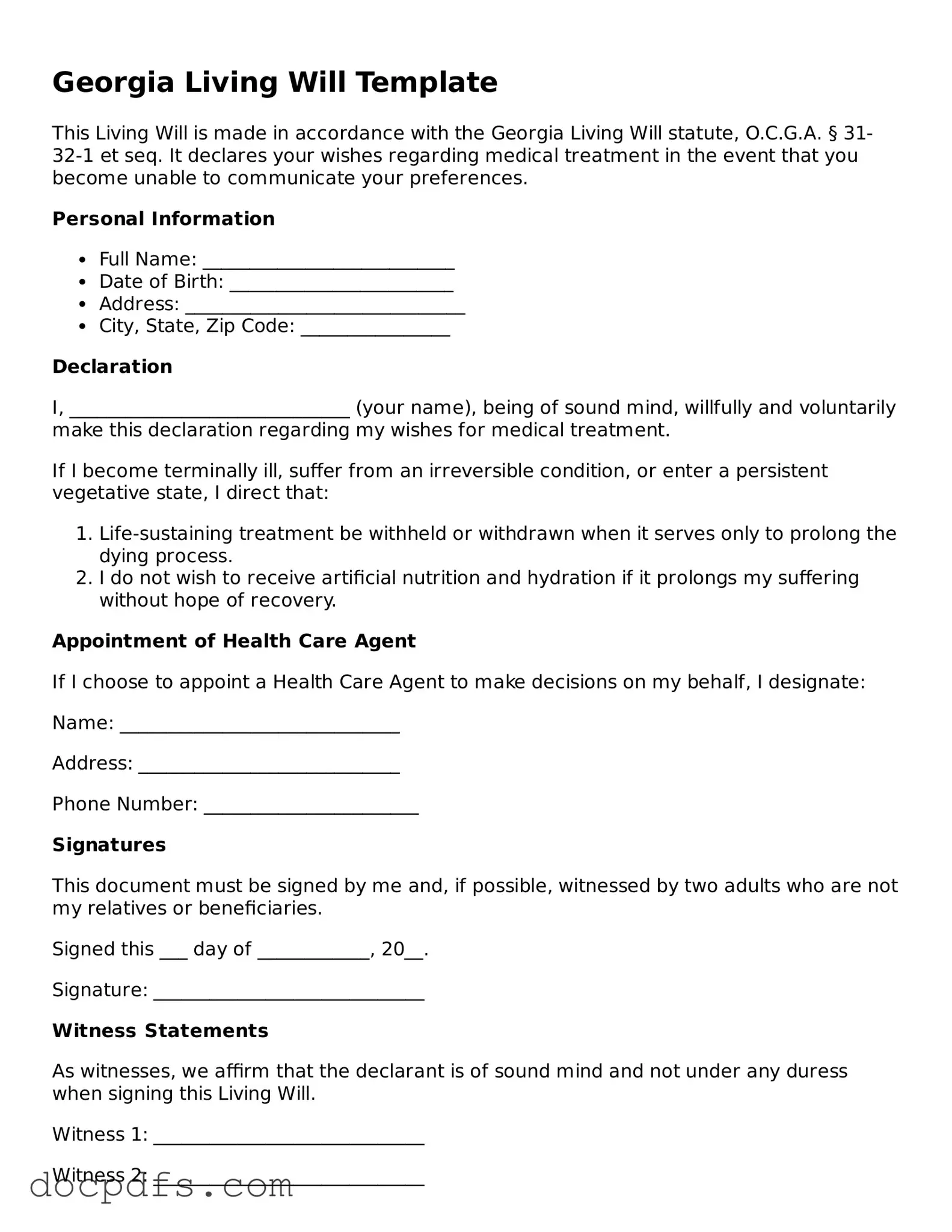What is a Georgia Living Will?
A Georgia Living Will is a legal document that allows individuals to express their wishes regarding medical treatment in the event they become unable to communicate those wishes themselves. It specifically addresses end-of-life care and outlines what types of medical interventions one would or would not want to receive.
Who should consider creating a Living Will?
Anyone over the age of 18 should consider creating a Living Will. It’s especially important for individuals with serious health conditions, those undergoing major surgeries, or anyone who wants to ensure their medical preferences are known. Having a Living Will can provide peace of mind for both the individual and their loved ones.
How do I create a Living Will in Georgia?
Creating a Living Will in Georgia involves a few straightforward steps:
-
Reflect on your medical treatment preferences.
-
Obtain the Georgia Living Will form, which can often be found online or through legal resources.
-
Complete the form by clearly stating your wishes.
-
Sign the document in the presence of two witnesses or a notary public, as required by Georgia law.
Can I change or revoke my Living Will?
Yes, you can change or revoke your Living Will at any time, as long as you are mentally competent. To do this, you should create a new Living Will that clearly states your updated preferences or provide a written notice that you are revoking the previous document. It’s a good idea to inform your healthcare providers and loved ones about any changes.
What happens if I do not have a Living Will?
If you do not have a Living Will, medical decisions may be made by your family members or healthcare providers based on what they believe you would want. This can lead to confusion or conflict among loved ones during a difficult time. Having a Living Will helps ensure your specific wishes are honored and can alleviate stress for your family.
Is a Living Will the same as a Power of Attorney?
No, a Living Will and a Power of Attorney are different documents. A Living Will focuses specifically on your medical treatment preferences, while a Power of Attorney allows you to designate someone to make decisions on your behalf in various matters, including financial and healthcare decisions. It’s often beneficial to have both documents in place.
Can my Living Will be used in other states?
A Georgia Living Will may not be automatically recognized in other states, as laws regarding advance directives can vary. However, many states have provisions to honor Living Wills from other jurisdictions. It’s wise to check the specific laws of the state you are in or consult with a legal professional if you plan to move or travel frequently.
How do I ensure my Living Will is followed?
To ensure your Living Will is followed, consider the following steps:
-
Discuss your wishes with your healthcare providers and family members.
-
Provide copies of your Living Will to your doctors and hospital.
-
Keep the original document in an accessible location.
Open communication about your preferences is key to ensuring your wishes are respected.
What if I have more questions about my Living Will?
If you have more questions or need guidance, consider reaching out to a legal professional who specializes in estate planning or healthcare law. They can provide personalized advice and help you navigate the specifics of your situation.

